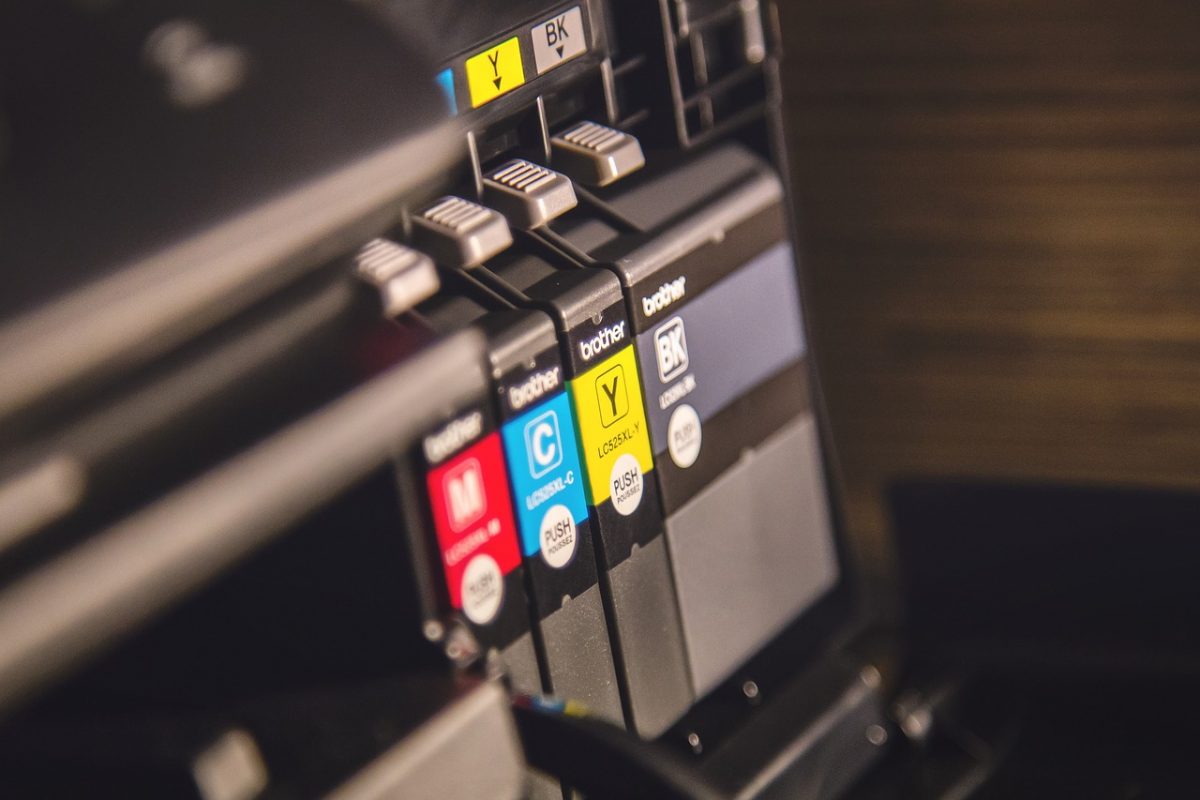
When your printer is acting up and won’t print all pages of your documents, for example, skipping pages in between, it can be annoying. If you’re encountering similar issues, you’ve come to the right place. In this post, we’ll show you how to fix your printer when it’s not printing all pages.
Try these fixes…
You don’t have to try them all, just work your way down the list until you find the one that does the trick!
3: Restart the print spooler service
4: Repair corrupted system services
5: Disable SNMP in Printer Properties
7: Update your printer software
Fix 1: Check your printer
When your printer can’t print the full document and is skipping some pages, you need to check your printer first.
- Make sure your printer is securely connected to your PC.
- The ink isn’t running out and the ink cartridges are not clogged.
- There’s enough paper in the paper tray.
- Restart your printer and give it a refresh, it could be just a glitch.
If you’ve performed these basic troubleshooting steps but your printer still won’t print all pages of your document, try the next fix.
Fix 2: Update your printer driver
A common cause for most printer issues, including the printer not printing all pages problem, is a faulty or outdated printer driver. You may want to check if your printer driver is up-to-date and functioning properly.
There are two ways to keep your printer driver up-to-date. One is to manually update it via Device Manager. Just note that Windows doesn’t always give you the latest available update, and you may need to search on the manufacturer’s website. Be sure to choose only the driver that is compatible with your Windows version.
Automatic driver update – If you don’t have the time, patience, or computer skills to update your driver manually, you can, instead, do it automatically with Driver Easy. Driver Easy will automatically recognize your system and find the correct driver for your exact printer and your Windows version, then it will download and install the driver correctly:
- Download and install Driver Easy.
- Run Driver Easy and click the Scan Now button. Driver Easy will then scan your computer and detect any problem drivers.
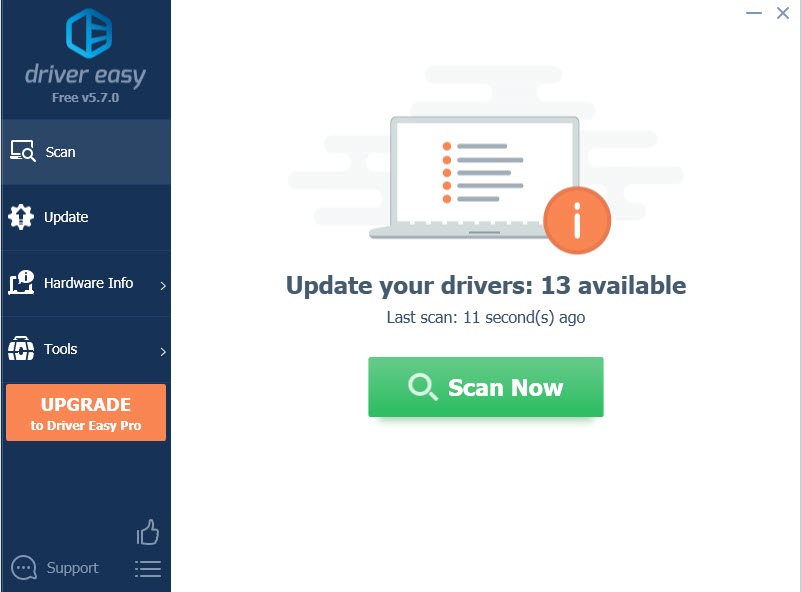
- Click the Update button next to the flagged printer driver to automatically download the correct version of the driver, then you can manually install it (you can do this with the FREE version).
Or click Update All to automatically download and install the correct version of all the drivers that are missing or out of date on your system. (This requires the Pro version which comes with full support and a 30-day money-back guarantee. You’ll be prompted to upgrade when you click Update All.)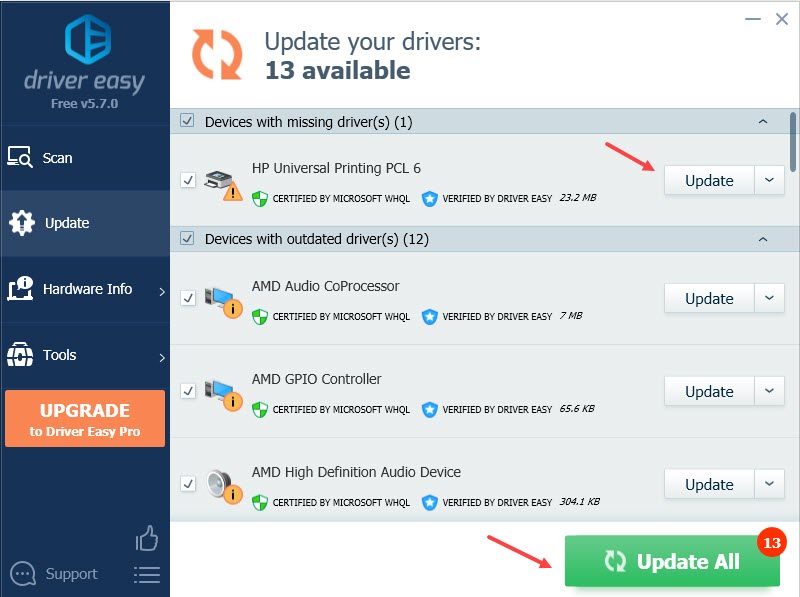
If you need assistance, please contact Driver Easy’s support team at support@drivereasy.com.
If updating your printer driver doesn’t solve the problem for you, try the next fix.
Fix 3: Restart the print spooler service
The Print Spooler is a required Windows service when you’re printing from your PC. This service’s on by default, but if yours is not working properly, it may interrupt the printer’s function and cause it to print only partial pages of the entire document. You can try to restart it to see if it helps:
- On your keyboard, press the Windows logo + R keys simultaneously to open the Run box.
- Type taskmgr and hit Enter.
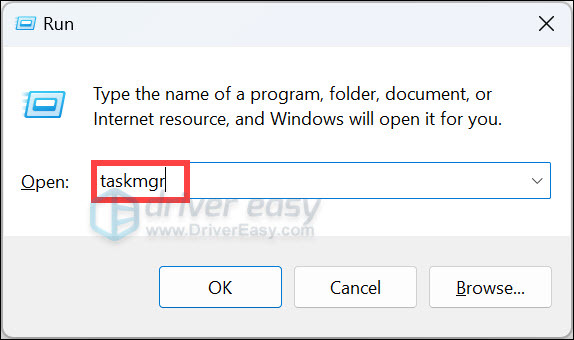
- Go to the Services tab, scroll down and find Spooler. Right-click it and select Restart.
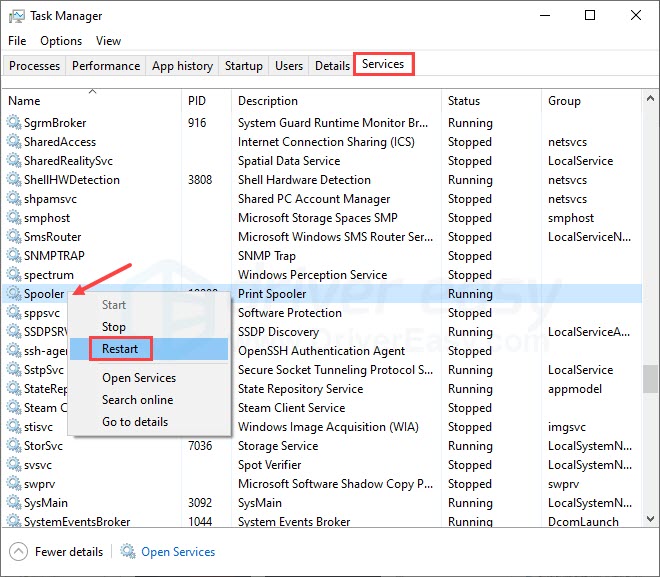
The screenshot above comes from Windows 10. If you’re running Windows 11, your screen may look slightly different. However, the steps you perform remain persistent.
If your printer still won’t print all pages, try the next fix.
Fix 4: Repair corrupted system services
If any of your system files or Windows services that are required for printing are corrupted, it could cause printer issues and thus your printer can skip printing pages.
To identify problematic system files, normally you can use the system checker tool (sfc /scannow). However, it doesn’t help much when it comes to printer issues, because printer issues are more likely triggered by malfunctioning Windows services.
You may need a more powerful tool to repair your system, and we recommend giving Fortect a try. It’s a professional system repair software that specializes in solving printer issues. Fortect can also diagnose your Windows problems and fix corrupted system files and services without affecting your data.
- Download and install Fortect.
- Run the software. Fortect will start a deep scan of your system. The process may take a while.
- Once the scan is complete, you can review the summary. If Fortect detects any missing or broken system files or other issues that may have triggered your printer problem, you can click Start Repair to fix them.
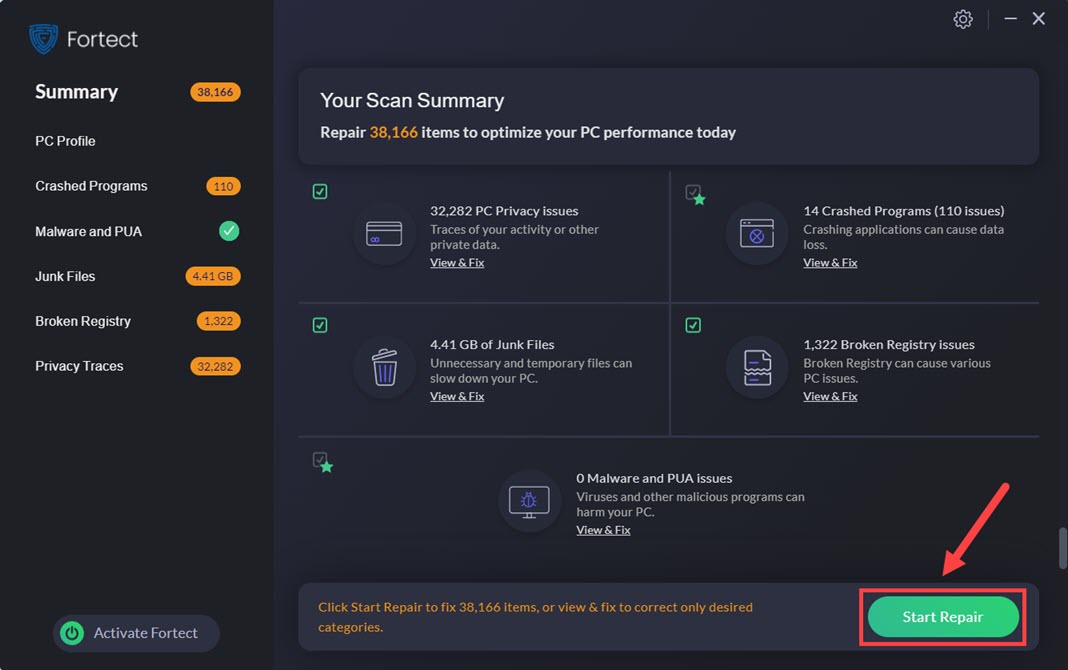
If the problem persists, try the next fix.
Fix 5: Disable SNMP in Printer Properties
Simple Network Management Protocol (SNMP) is responsible for configuring network devices, for example, your printer. It’s not often used and may cause random printer issues sometimes. When your printer can’t print all pages, you can try to disable SNMP to see if it helps.
- In the search bar next to your Start button, type printer, and click Printers and scanners.
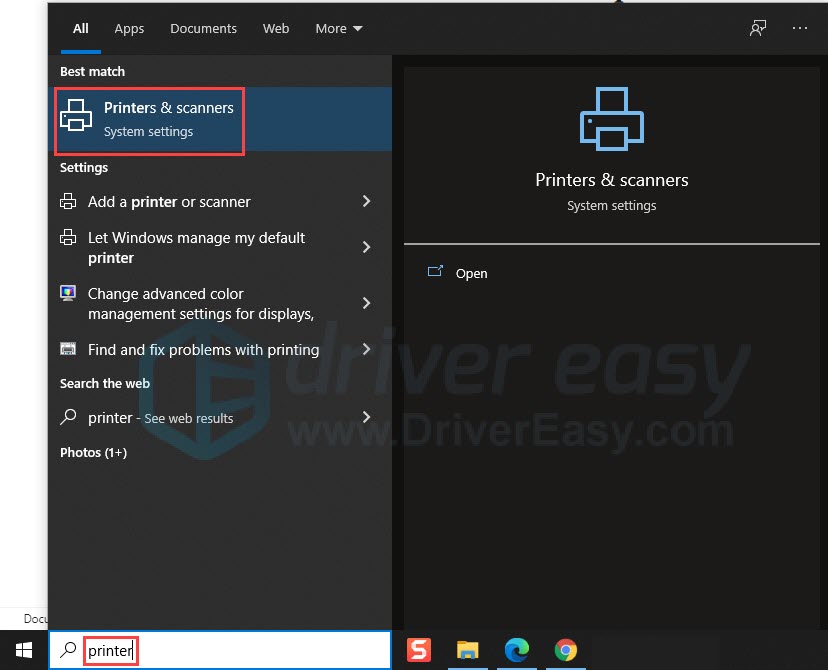
- Select your printer, then click Manage. (If you’re on Windows 11, simply click on your printer. )
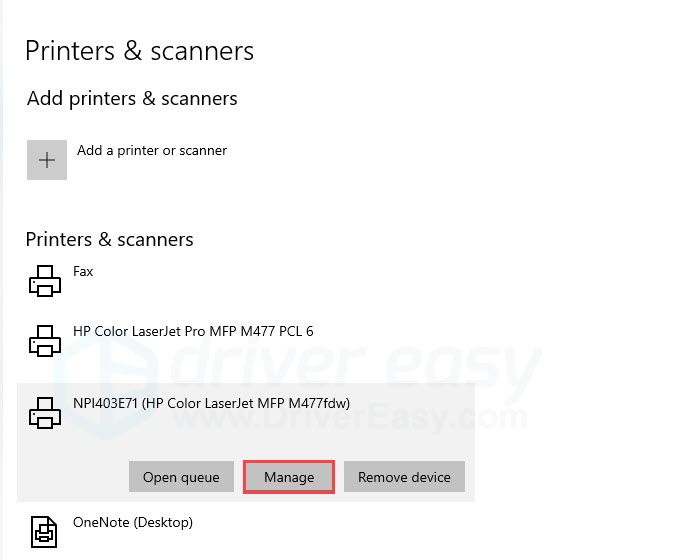
- Click Printer properties.
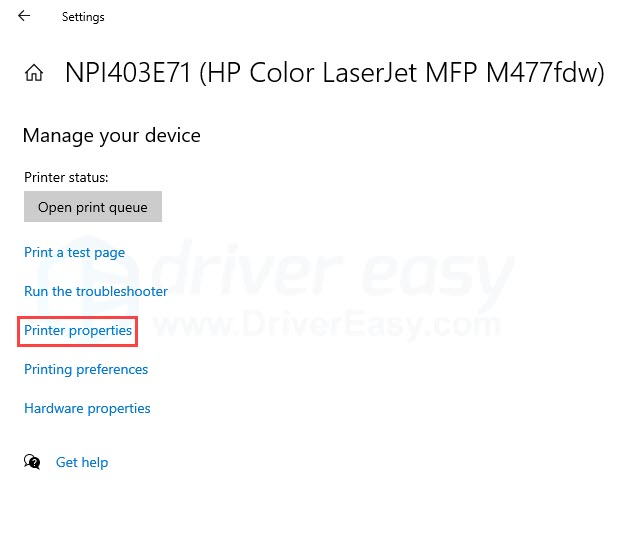
- Go to the Ports tab, select the TCP/IP port, then click Configure Port.
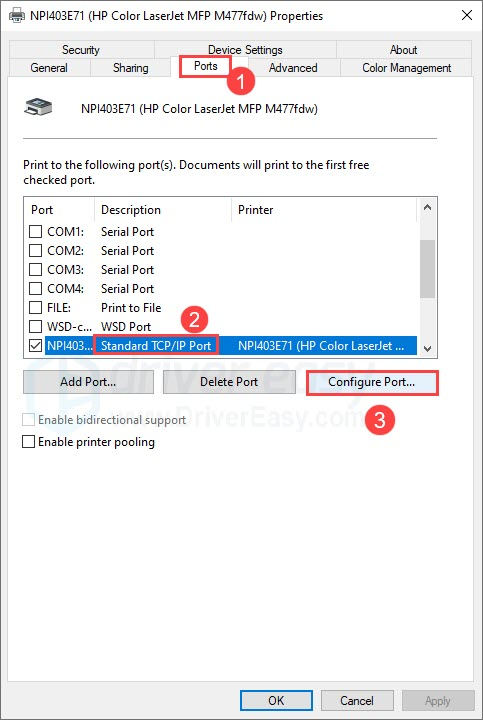
- Make sure SNMP Status Enabled is unchecked.
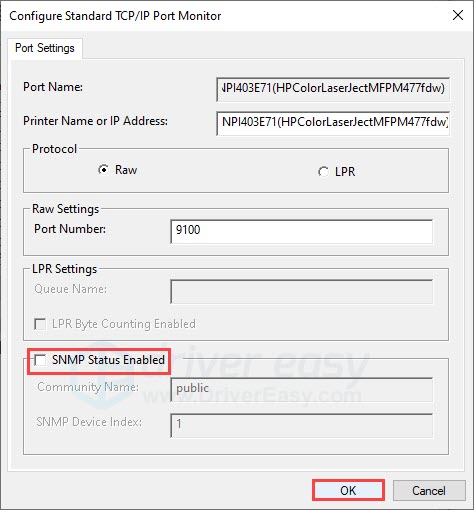
If the problem returns, you can repeat the steps above and re-enable SNMP in your printer’s properties.
Fix 6: Clear the spooler cache
A corrupted spooler cache could trigger random printer errors and cause the printer to act up. You can try to delete the spooler cache to see if it helps.
- Press the Windows logo key and R on your keyboard to invoke the Run box.
- Type spool in the textbox, then click OK.
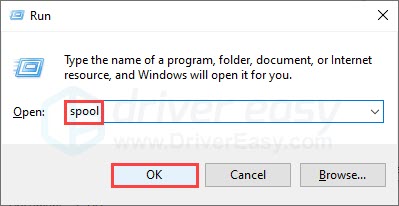
- Double-click the Printer folder, and delete all the files in the folder. (Do not delete the folder itself.)
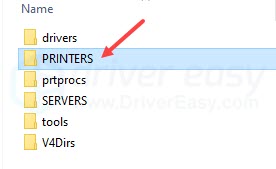
If this doesn’t work, there’s one more fix you can try.
Fix 7: Update your printer software
If you’ve been using the printer software from its brand, you can try to update it and print via the software. It might or might not solve the problem, but keeping the printer software up-to-date can help troubleshoot any other random issues you may run into.
Hopefully, this article has been helpful! Please feel free to leave a comment down below if you have any questions or suggestions.



